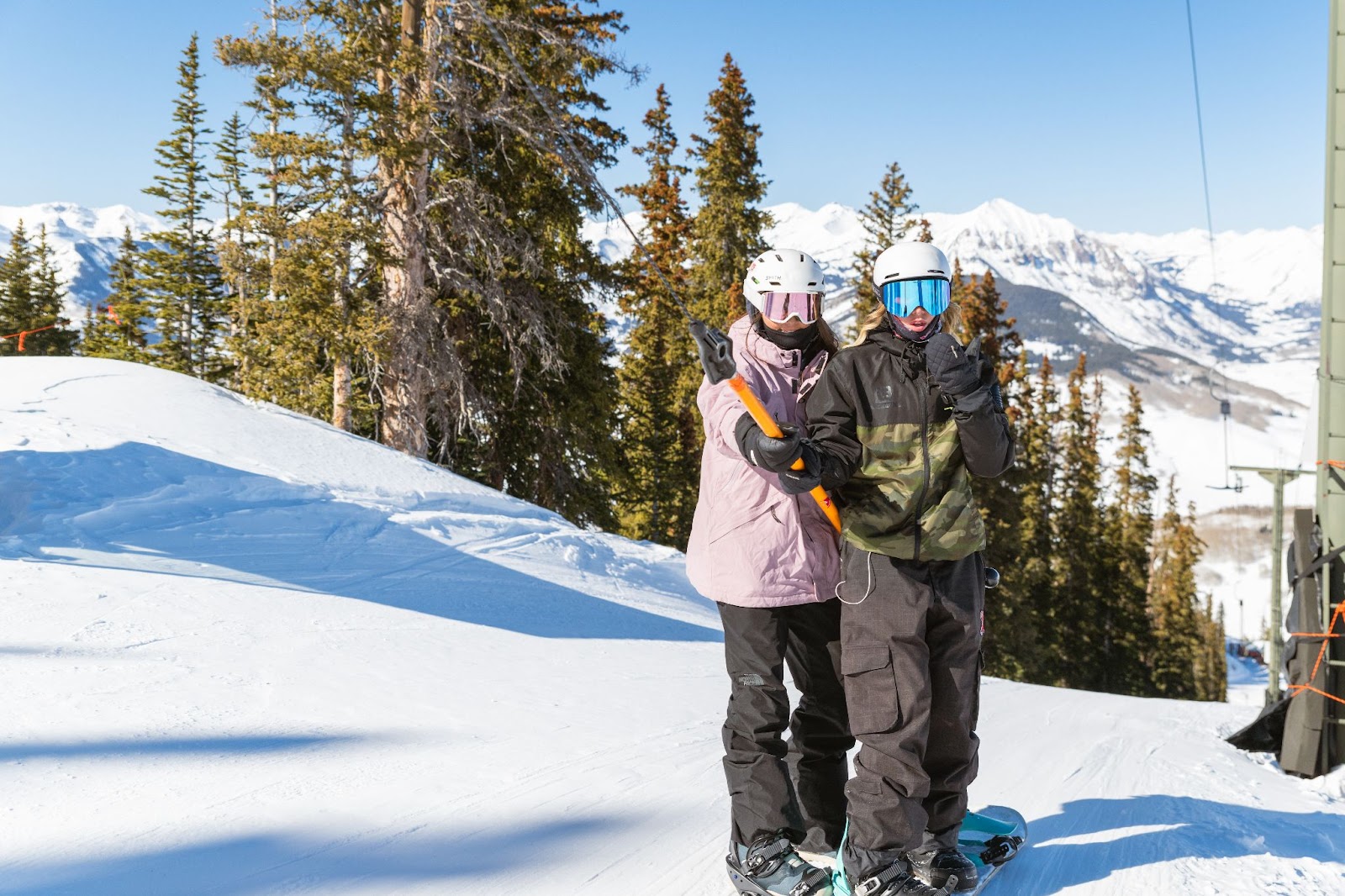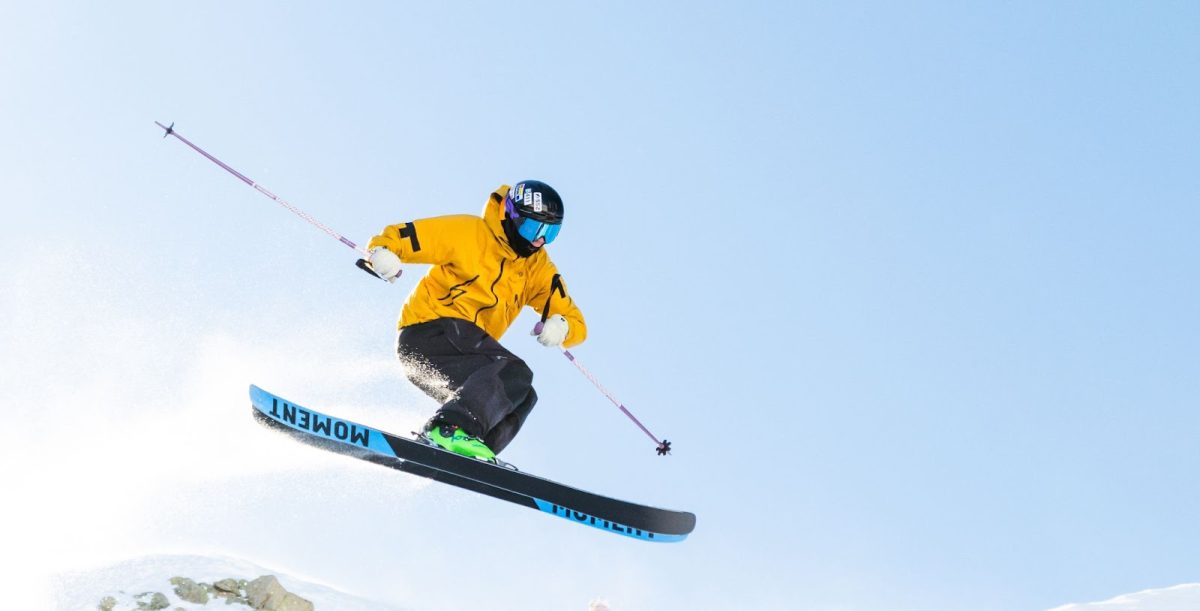Overview:
Western's Freeride team is a family off the mountain, and high flying competitors on it.
On a brisk Friday in Gunnison, most Western students are keeping warm in class or preparing for their next exam. Meanwhile, student-athletes on the freeride team are throwing themselves off cliffs at Crested Butte in preparation for their next extreme skiing competition.
Western’s freeride team has been around for 20 years, first as the “freestyle” team. Throughout those years, it has had numerous internationally ranked skiers, and enjoyed the strong advantage over other teams of having its home mountain, Crested Butte, being a hub of the sport.
But only a few months ago the team’s future was in doubt. All of the team’s coaches decided to pursue other opportunities, leaving the team heading into this year not knowing whether or not they would have a coach. “We were prepared to take it over ourselves,” says Riqeel Simeon, a sophomore.
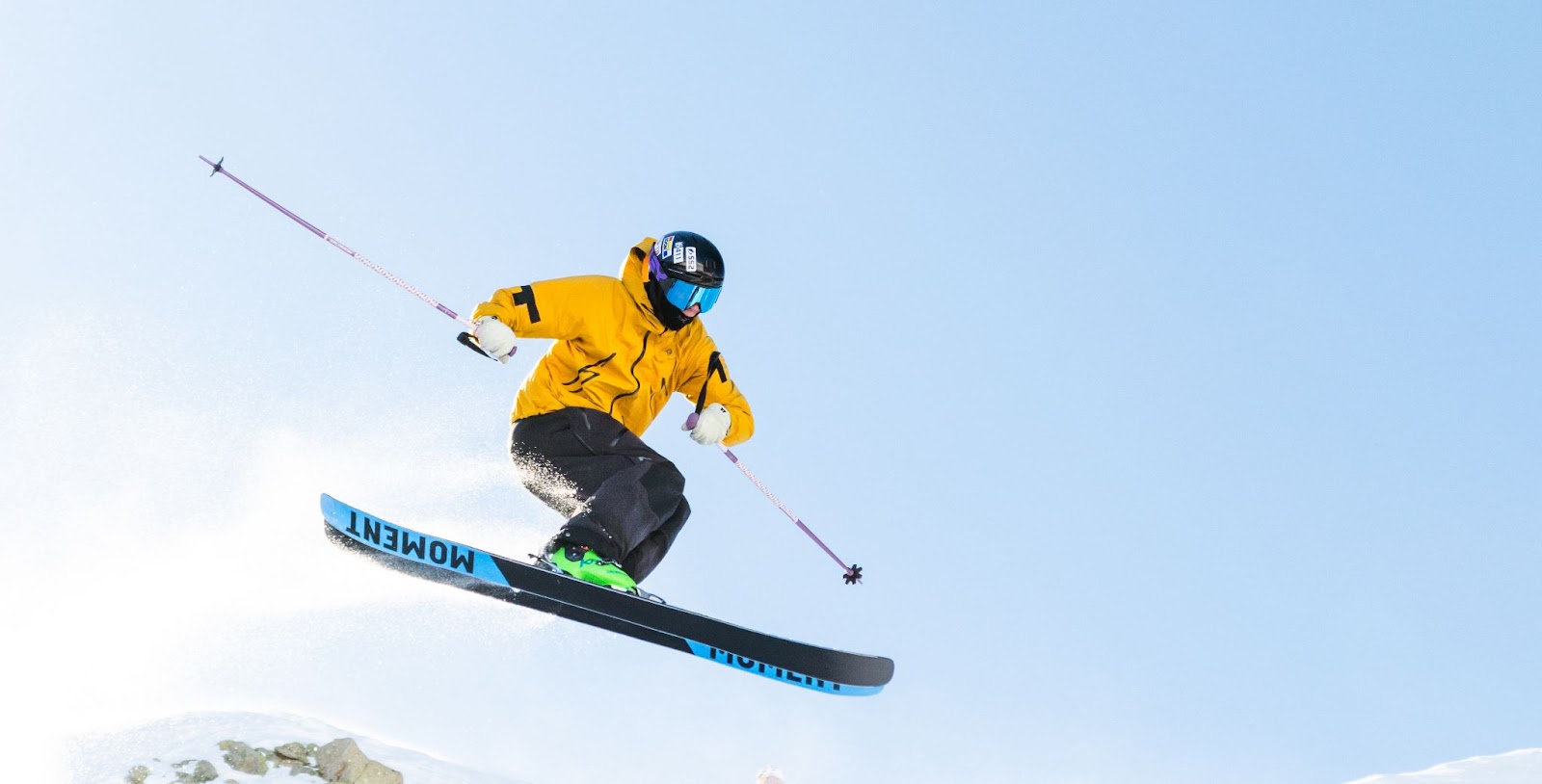
Five of the athletes were given the chance to join the hiring committee, which also included team alumni and two school officials. On the last day the job posting was open, Austin Kinzer applied. Kinzer, originally from Washington, was previously a coach for Team Summit based out of Breckenridge. He was joined by three Western alumni assistant coaches: Andrew Kunze and siblings Hayley and Dylan Wood. Together they have over two decades of freeride competition experience.
“[They] are bringing in tons of good new stuff as well as keeping up the traditions of the team,” says Cal Hill, a senior from Vail. Hill said the traditions of Western’s team are about keeping a fine balance on team culture between being relaxed and highly skilled. There’s no pressure to make it to every competition or ski as hard as possible at practice. “It feels like a fun sport and not a task,” Hill says.
Western’s freeride team falls under the university’s Mountain Sports category, which also includes the school’s mountain biking, climbing, and trail running teams. As a club team, it is not an officially-sanctioned NCAA team; yet athletes are still given an opportunity to compete in national and international events governed by the International Freeskiers and Snowboarders Association. Two years ago, Western sent Clara Lantz of Alaska, then a sophomore, among other athletes to Canada to compete in the Freeride World Qualifiers.
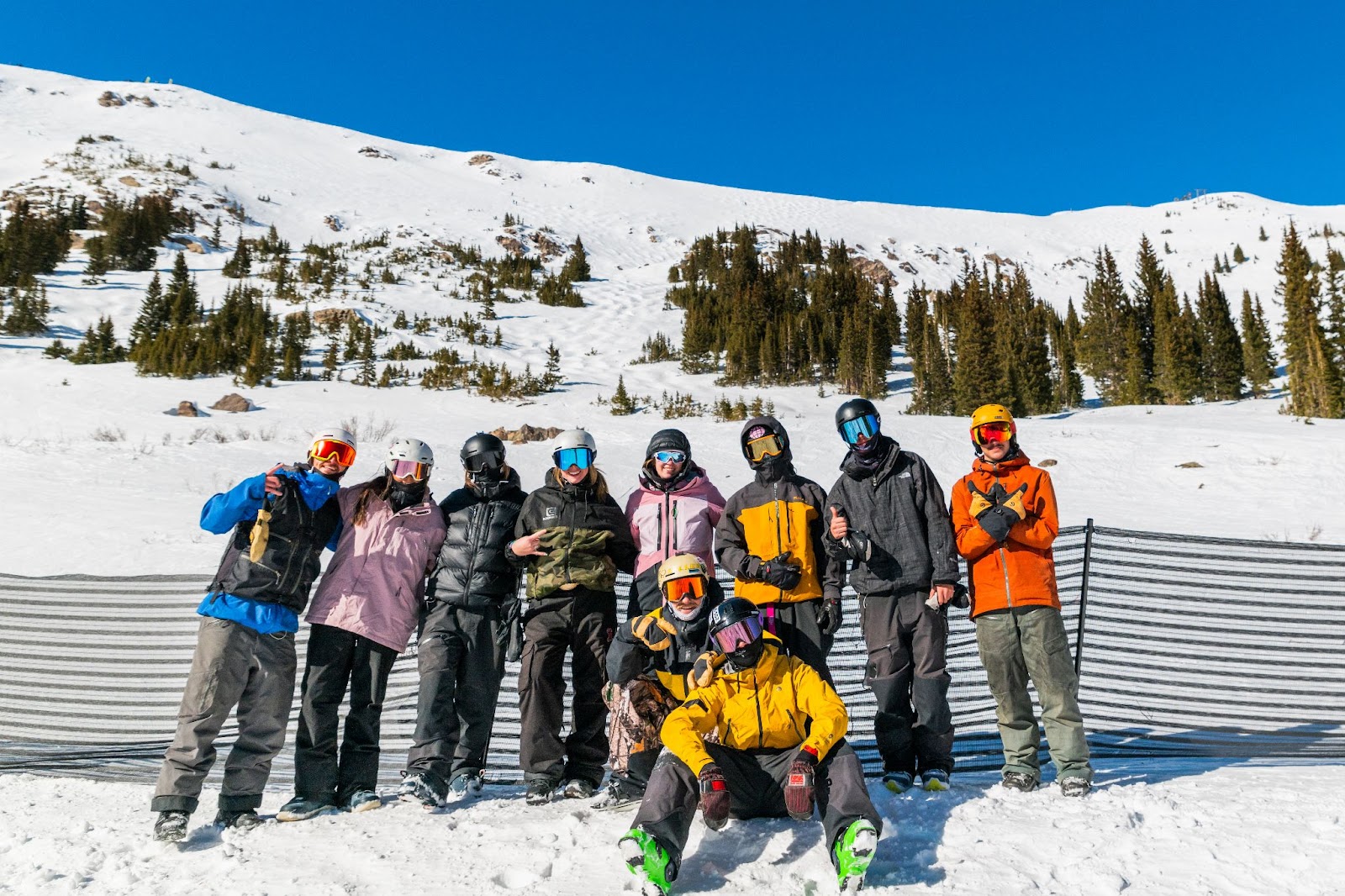
When Hill came to Western, skiing was just a hobby for him. Now he’s one of the athletes Western has consistently sent to the World Qualifiers. He credits the team and its coaching staff for his success on the slopes. By his sophomore year, he was ranked in the top 21 of all of North and South America, starting his journey to qualify for the pro tour. That’s how Lantz qualified two years ago as well. In his final year, Hill is taking his third shot at the tour.
Western’s freeride team competes on all four levels of freeride, which range from one to four stars, with four being the highest. Runs are scored in a variety of ways ranging from style to control, but athletes are rewarded the most for choosing a difficult line. Crested Butte is recognized worldwide for its expansive extreme terrain, which provides athletes with plenty of opportunities to get comfortable with difficult lines before the real deal.
Another advantage is that Crested Butte is one of IFSA’s favorite mountains. They set competitions there several times a year. In March, in a two-star competition on Hawk’s Nest, a steep run on Crested Butte’s North Face, three Western freshmen took up spots on the podium. “Seeing those athletes put together clean runs and being up there [on the podium] stoked for each other was a highlight [for me],” says coach Kinzer.
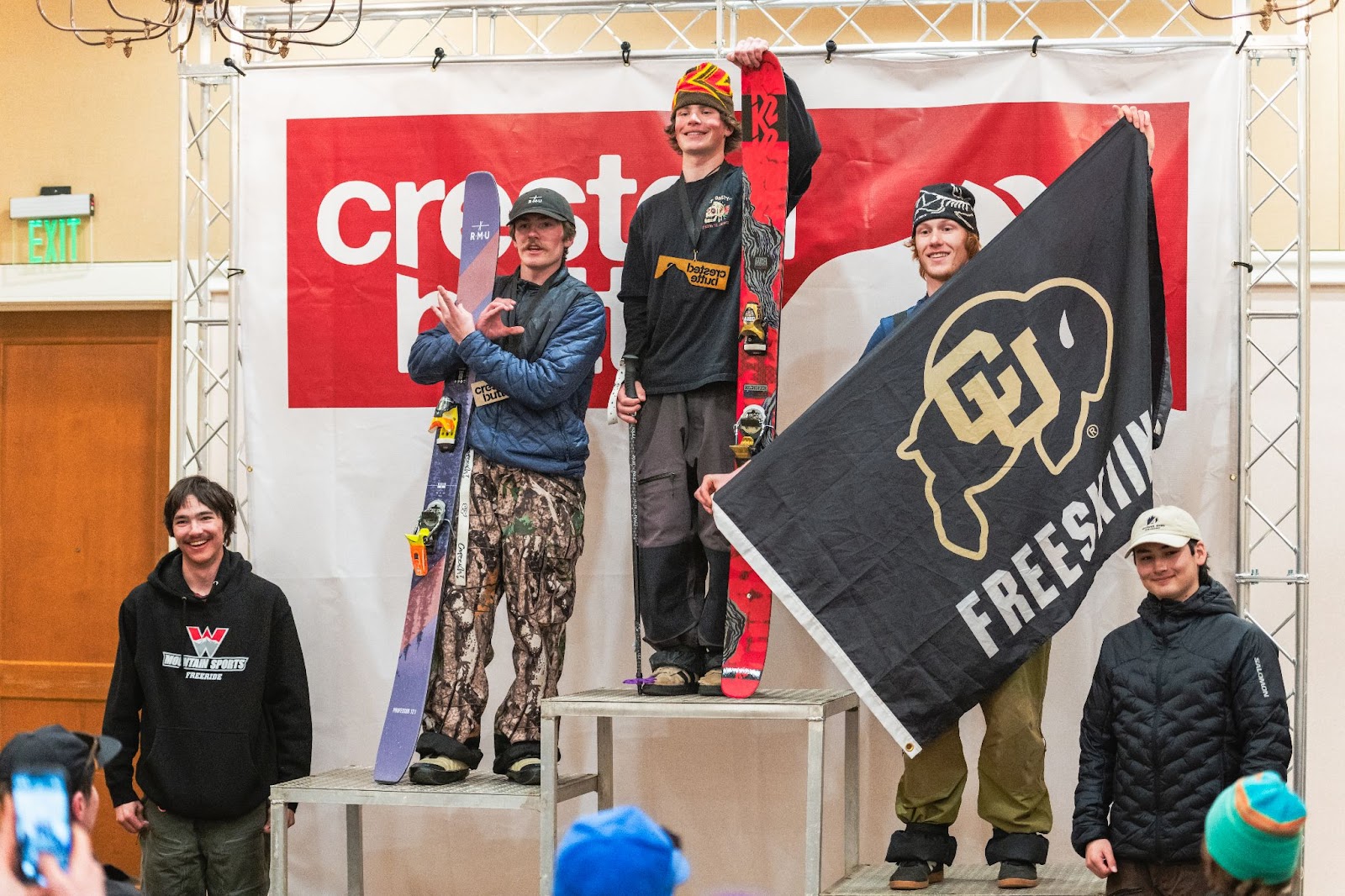
Freeride has its roots in extreme skiing and another ski resort known for its extreme terrain is Alpine Meadows. One freshman, Stellan Lane of Lake Tahoe, calls that his home resort. When asked how it compares, he says “It’s gnarly here. [At Alpine Meadows], you’ll have one big cliff, it’s hard to put a line together. Here, there’s so many spots.”
Lane describes the team as the “whole reason he’s here.” Freeride has been a part of his world since 8th grade, and he finds it remarkable how affordable Western’s team is compared to junior teams he has been on. Dues range from $500 to $700, and cover all travel costs, coaching, and transportation to Crested Butte and to competitions, ranging from as close as Monarch to as far as international events.
One new perk this year for the team was worked out by sophomore Riqeel Simeon, who is now the team’s dryland coordinator. She felt inspired to lead the team after she tore her ACL last season as a result of training less later in the season and being weaker. She doesn’t want other athletes to deal with that, and new this year is continuing dryland practice throughout the season.
Dryland is what the team calls their strength training practice off the mountain. The school previously only could use the regular student gym, but now has access to the NCAA varsity gym, a rare feature for a club skiing team.
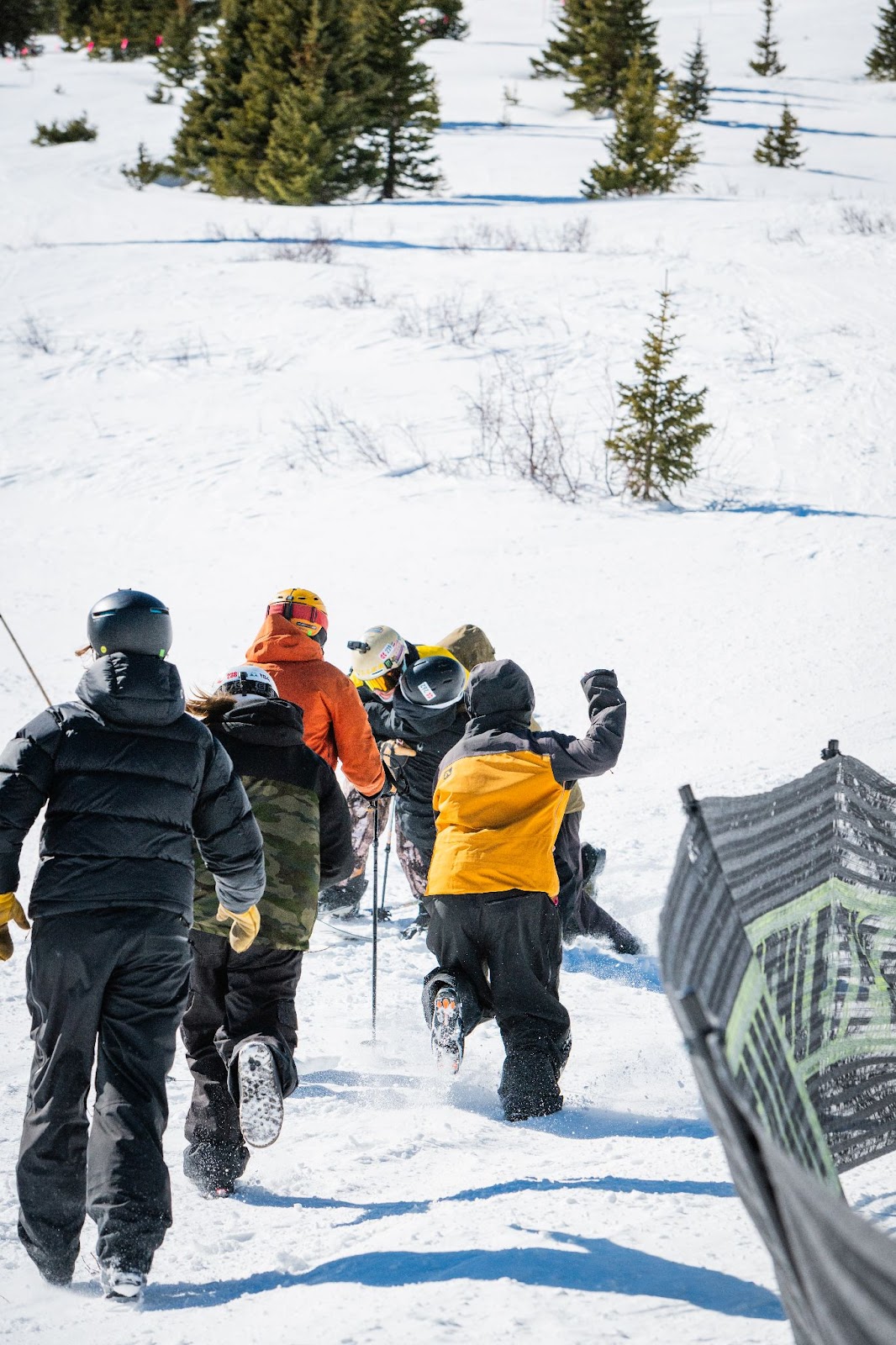
Being on the freeride team is like taking on a new family. The team rents a house for the competitions and athletes say it brings the team closer together. When an athlete finishes a run, they are met with hugs and high-fives from their teammates. Something the coaches are doing this year is a bigger focus on team bonding, which on a recent trip involved playing board games and going bowling, which makes for a nice break between skiing extremes.
Hill remembered Eric Freson, an alum who started the school’s freestyle team around 20 years ago. Freson tragically passed away in an avalanche accident last winter. “He will forever resonate with this team,” Hill said, “adding that he created a team that’s both full of expert skiers yet incredibly supportive, a philosophy which he’s sure will live on as the team evolves with each freshman class.
Many of the team members found their best friends on the team. For Simeon, that culture was a big reason why she joined the team: “I really, really wanted to pursue competitive snowboarding, and especially here at Western with such a supportive group of people.”
Lantz says that her junior year was difficult because she crashed in her two comps and ended up judging herself too hard. This year, she credits the team for her comeback: “Skiing with my friends has made me love it a lot more.”
Not all Western athletes start with an extensive history in freeride. Take Olivia Woulfe, a junior. Originally from the midwest, she joined the freeride team her freshman year with just a few years of snowboarding experience. Now, she’s competing in 4-star competitions. Head coach Kinzer says it’s the most progress he’s ever seen in an athlete, and was particularly impressed by her not missing a single dryland practice this year.
With a strong group of coaches, an incredibly talented freshman class, and a supportive, accessible team atmosphere, the Western freeride team is in better shape than ever. The future most likely holds greatness for some of these athletes, but one thing is certain: they will continue to push kiing to its limits at our very own Crested Butte.
